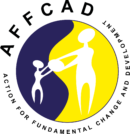With the COVID-19 crisis and its socio-economic impacts, all groups in society have been affected in different ways. The COVID-19-induced lockdowns have hit low-income communities—who depend on ‘hand-to-mouth’ for their livelihoods—especially hard.
This has mainly affected the youth, whose businesses and livelihoods have been closed such that they cannot earn enough to support themselves and their families. Maria—a hairdresser in Bwaise—explains:
‘I have not been able to work as shops in town have been closed. And with public means of transport suspended, I am not able to move around to reach out to my customers. This has greatly affected my income, and I am barely able to sustain my family.’
AFFCAD recently mapped out 1,500 of the most vulnerable households in the areas of Bwaise II, Bwaise III and Kyebando in Kawempe Division. The results showed that 70% of the residents in the above parishes are experiencing food insecurity, with some going days without eating anything at all. Almost 80% have lost their livelihoods and are now left unemployed.
There is a need to help young people build resilience to these ‘life shocks’ so that, when faced with new challenges like the COVID-19 crisis, they remain able to sustain themselves. This can be achieved through training in entrepreneurship-related skills, like managing savings and sustaining a business amidst economic volatility.
Young people can also be supported by providing them with funds through youth groups and ‘Village Savings and Loan Associations’ (VSLAs), which help them kickstart their businesses and boost them economically.
Meanwhile, mental health mentorship and counselling are equally important in preventing young people from giving up on themselves when faced with crises.



